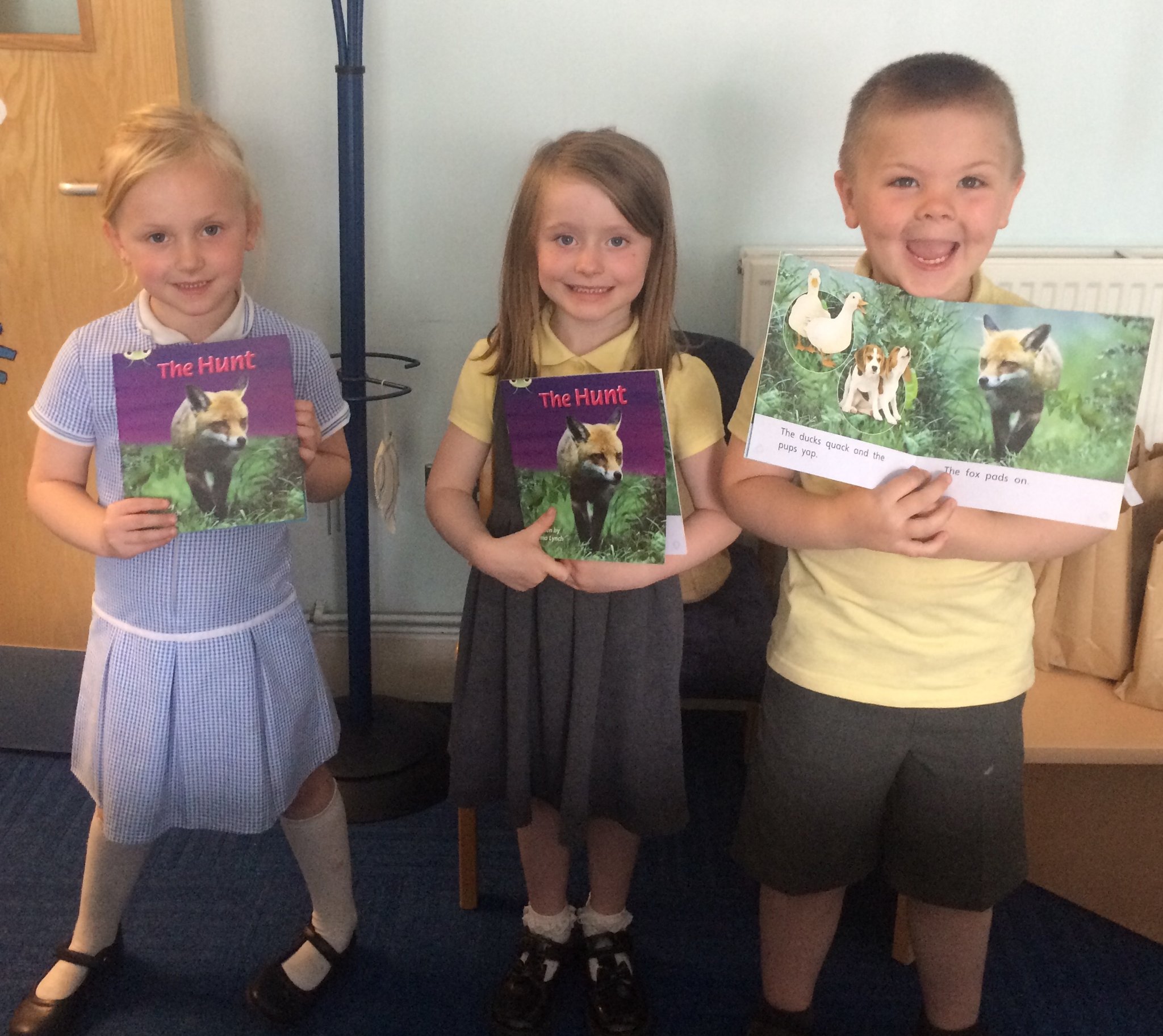Reading and Phonics Schemes
Our children enjoy learning phonics and reading. Our vision for Reading is to develop
- successful learners who achieve their potential in reading
- confident individuals who are able to read fluently and coherently, with expression and intonation.
- responsible and spiritual citizens who enjoy a variety of genres and read widely for pleasure alongside gaining a broad knowledge across the curriculum.
- active engagement, drawing on appropriate outside expertise to enhance our Reading curriculum such as authors and poets.
Our Reading Journey begins in Nursery where children listen to stories, enjoy joining in with rhymes and repetition and singing nursery rhymes and songs. They are exposed to a print-rich environment and lots of reading and writing opportunities.
In EYFS children start reading decodable phonic books. Our daily phonics scheme for EYFS and Key Stage 1 children is "Phonics Bug". Children start their phonics lessons with an interactive video, followed by engaging activities whic enable them to practise new sounds, blending and segmenting sounds, and learn correct letter formation.
Children then practise their new phonic knowledge by reading Bug Club Phonics books. These books are based on the "synthetic phonics" approach to the teaching of reading, using a mixture of fiction and non-fiction texts. Books chosen are closely matched to the sounds children have been learning, providing lots of reinforcement. We read these books in school, and children practise the same books at home. The children can also access the books as e-Books which have games and activities to take part in.
Once children are confident with decoding phonics, we introduce other book banded reading resources including Rigby Star, Rigby Rockets and Project X. These bridge the gap between decodable phonic books and library books. By the end of Year 2, most children no longer need the structure of a reading scheme, and have moved on to choosing their own home reading books from the school library.
We follow a Whole Class Reading approach to teaching reading beginning in Year 2 (summer term of Year 1 if children are ready). In whole class reading, children meet challenging texts, learn advanced vocabulary and sentence structures, and listen to fluent readers modelling reading aloud with expression and intonation. Reading skills such as retrieviing information, summarising, inference and prediction are taught, and understanding is developed through discussion and collaboration. We use Literacy Leaves from the Literary Curriculum as the basis of our reading lessons from Year 2 to Year 6. These link to our Writing Curriculum.
A typical whole class reading session might include:
- pre-teaching of tricky vocabulary to explore
- reading an extract or chapter of the book, modelling expression, intonation and fluency, and discussing the vocabulary in context.
- reading activity focused on the chosen reading objective (eg summarising, inference) working individually, or collaboratively in pairs or in groups
- plenary sharing examples of their learning, reading on to a cliff-hanger for the next session
We encourage all children to borrow books from our school library. Initially these will be books they would like a grown-up or older sibling to read to them to develop their vocabulary and language, but as they become more confident with their own reading they will be able to identify sounds they are learning and high frequency words. Older children are encouraged to borrow non-fiction as well as fiction books, to pursue their interests and hobbies, and to read for pleasure.
Our provision is further enriched with:
- visitors e.g. author Damian Harvey
- charity fundraising eg. summer reading challenge, Usborne sponsored challenge
- positions of responsibility such as librarians and reading buddies
- participation in national events such as world book day and storytelling week
- theme afternoons such as Roald Dahl day and Winnie the Pooh day
Here we are practising our guided and independent reading in Year 1/2.
Here are Year 4/5 taking part in a storytelling day with schools across the country. It was led by a Swedish storyteller who told them all about St Lucia.
Recommended Reads for Explorers
Recommended Reads for Pathfinders
Recommended Reads for Discoverers
Recommended Reads for Adventurers
Recommended Reads for Navigators

